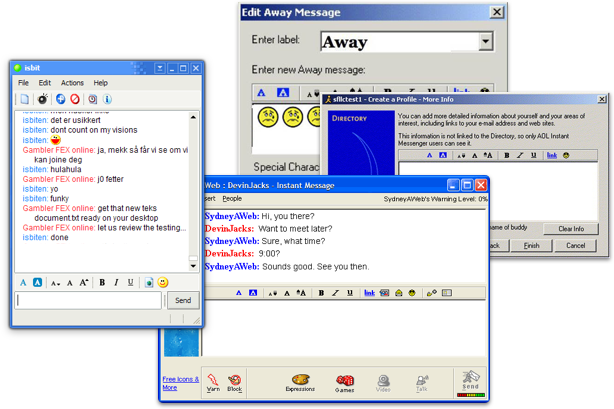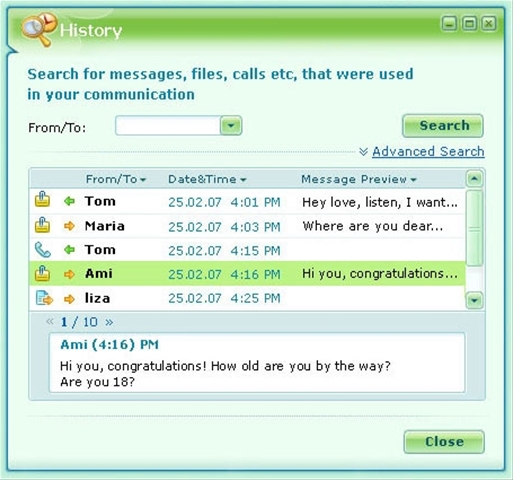

Nevertheless, the messenger with the green flower was a kind of early WhatsApp. ICQ has never managed to do what WhatsApp has done: to replace SMS. Maybe a first foretaste of what we experience again and again on the Internet, only much faster: Today the big thing and tomorrow already forgotten.Īt the latest with the advent of WhatsApp, the last ICQ fans have also changed channels. The former messenger giant is suddenly just one of many and at some point just isn’t cool enough anymore. With that, ICQ’s star slowly begins to decline.įacebook in particular ended the golden age of ICQ with its own messenger from the mid-2000s. As a result, more and more people are showing up online, albeit no longer through AOL, who didn’t catch the technological trend in time. This also establishes the first flat rate offers. At the end of the 1990s, a new dial-up option appeared: the broadband network. So far, people have dialed into the Internet via modem. But only a short time later the world changes. Other service providers are now also recognizing the potential of real-time chat. AOL itself is tinkering with its own messenger services, just like Microsoft is now doing. That’s why the successful provider of Internet access, AOL, decided in 1998 to buy the service for a whopping 407 million US dollars. At that time, more than 100 million people used the messenger worldwide, a huge number at that time and the partially still low spread of the Internet. Of course, the success of ICQ also makes other companies sit up and take notice. “Why didn’t you answer? You were online after all.” These conversations still exist in one form or another to this day. Because if a friend went online and didn’t reply to your own message within a certain period of time, this later – in a personal meeting – was cause for discussion. We probably have ICQ to thank for that, too. With chatting, another topic is also being introduced. When a friend’s status on ICQ changes from red to green, this leads to a huge emotional explosion on the other side of the computer. Today, when we are all constantly online, we can hardly imagine the situation at that time. That is why it is often higher in the 1990s, in the early years of the Internet.

The online time runs over the normal telephone bill. Flat rates or the like did not exist in this form.


 0 kommentar(er)
0 kommentar(er)
